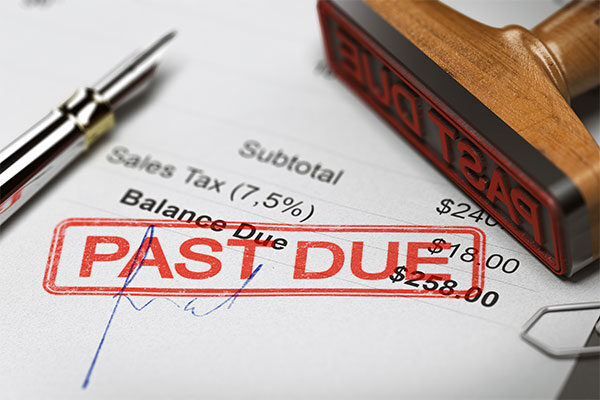Late payments are a difficulty faced by nearly every freelancer. They can put a strain on client relationships and can cause financial strain.
When you’re busy focusing on the day job it can be easy to leave the business administration for another day, especially if you are a lone worker. Being self-employed, however, means that it’s your job to do the books and getting paid on time is just as important to your business’ success as providing a top-notch service.
Recent research by The Association of Independent Professionals and the Self-Employed (IPSE) and Involvement and Participation Association (IPA) found that 63 per cent of the self-employed population has experienced late payments. The majority of those aged 18-34 had experienced late payments at least twice in the last two years.
The Federation of Small Business (FSB) estimates that late payments cost the UK economy £2.5bn annually with the self-employed and small businesses most adversely affected.
Yet not all late payments are cynical, and it is down to you to ensure that clients have all the information they need to pay you as well as knowing when they are expected to pay.
There are steps that all business owners can take to make sure money is in the bank on time.
This advice will help you boost your productivity, get paid on time, and ensure you remain on friendly terms with your clients.
Get organised
Keeping on top of who owes you what and when can be challenging if you are not organised or using “old tech” paper and Excel spreadsheets rather than more modern services.
Even with the right attitude, sending out payment reminders and chasing down late payers can become time-consuming and soul destroying if you are working alone.
The good news is there are plenty of online tools available to support you in your efforts, many of which are free. Pandle, for instance, can automate the process of chasing and reminding clients on your behalf, something that would free up your precious time to focus on winning new clients.
Getting a good reminder system in place will get you closer to your hard-earned cash
Offer a discount if people pay on time
or in advance
Improve your payment terms
Creating a payments policy that you agree up front with clients will ensure that everyone is clear about how and when you expect to be paid.
As well as making sure the customer has all the information they need to pay you – including your bank details and a VAT registration number – it is essential that they are clear about deadlines for payment.
It may be worthwhile considering how long you allow clients to pay – also known as debtor days. If you wait too long for payment it could have an impact on your cashflow, that is to say too much will be going out of the company account and not enough coming in. The danger is that you will be forced out of business because you allowed clients too much time to pay.
If you are quoting 28 days as standard, see if you can reduce it to 14 or fewer. Also, some businesses may be willing to pay in advance if you offer a discount, so think about these sorts of options and negotiate them at the start.
Get more money up front
If you are working on a long-term project that could span months, consider whether to request a deposit should the work be cancelled. If you have set a week aside for a client and the project falls through or gets postponed, you are left with nothing to show for it.
Likewise, you may want to discuss phased payments with clients, particularly if you are working on a long-term project.
Keep note of all the hours you have dedicated to the project. Getting paid for your time as well as the end product can be challenging, you must be able to show what you have done with your time so you are paid for it.
Being clear about your payments policy and sending out automated reminders ahead of the invoice due date will help you get paid on time. That can only be good for the success of your business.
Lee Murphy is the founder of Pandle, the cloud bookkeeping software specifically for small businesses and the self-employed.






